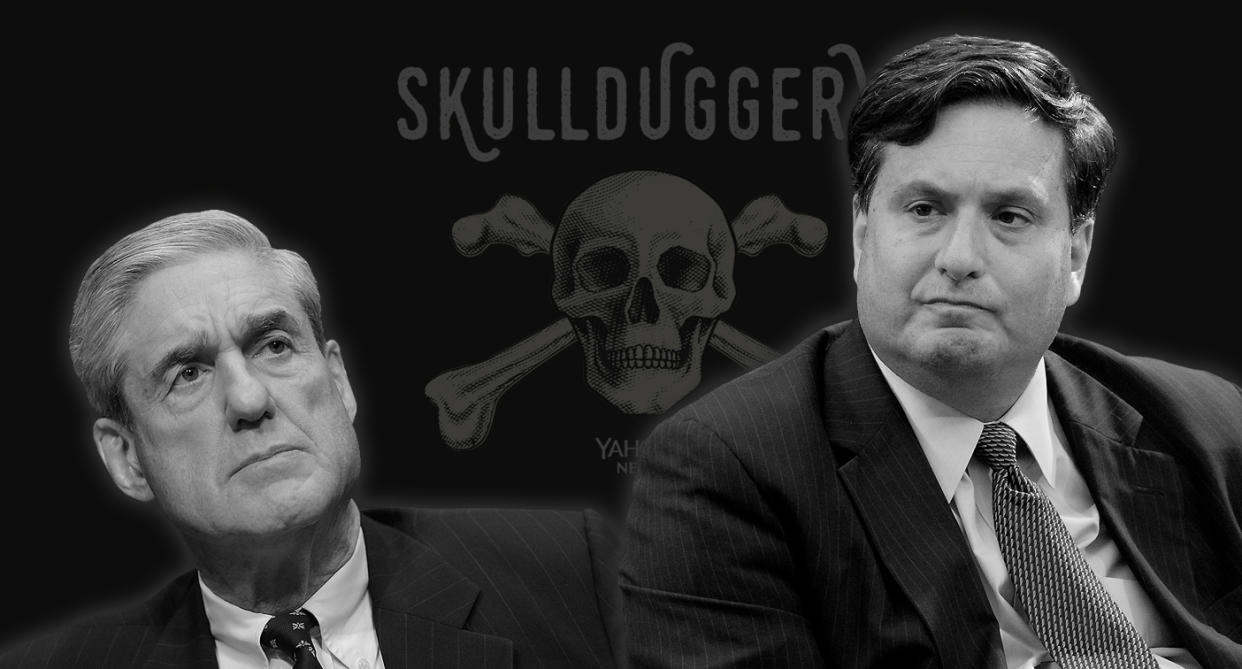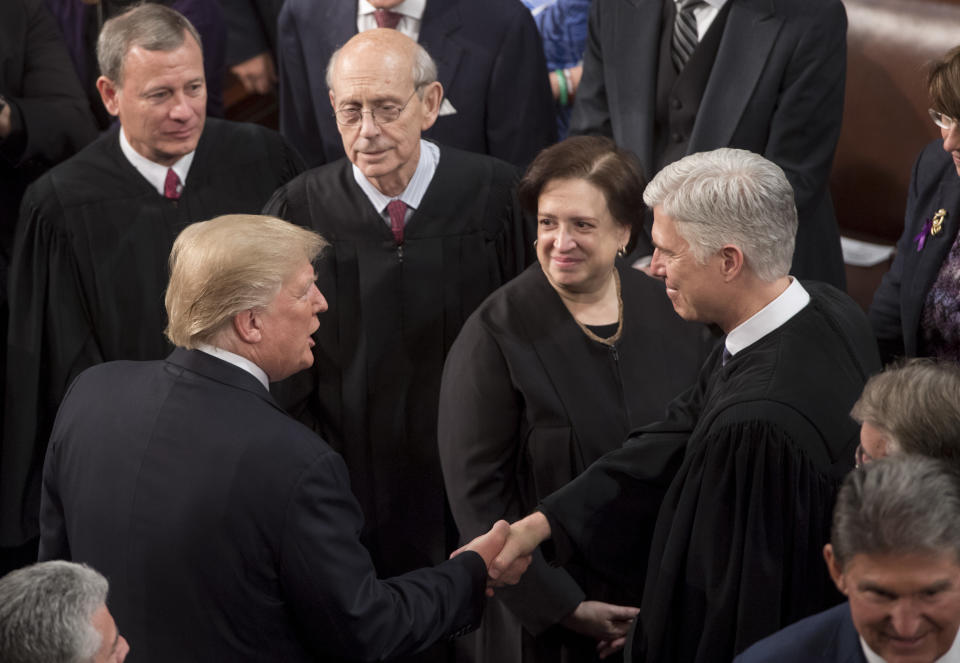Trump SCOTUS pick should be grilled about Mueller probe 'before their rear end hits the chair,' says top Dem strategist

A senior Democratic strategist says that the first question for President Trump’s nominee for the Supreme Court — “before their rear end hits the chair” — should be whether he or she was required to pledge loyalty to the president on key issues related to special counsel Robert Mueller’s Russia investigation.
Ron Klain, who has helped coordinate Democratic party strategy through multiple Supreme Court battles, said on the Yahoo News podcast Skullduggery that Senate Democrats should seek to smoke out the nominee’s views on questions central to the future of the Mueller probe. Among them: whether the president can be indicted, whether he can be forced to testify under subpoena and whether he can pardon himself.
“The very first question this nominee should be asked before their rear end really hits the chair … should be, ‘Did anyone in the administration, did the president, did anyone in the administration ask you your views on these questions?” Klain said. “[Did anyone] ask you your views on Mueller’s jurisdiction or the exemption of the president from potentially being indicted while sitting or the definition of obstruction of justice or anything related?”
Klain, who served as chief of staff to Vice Presidents Joe Biden and Al Gore and was once chief counsel on the Senate Judiciary Committee, acknowledged that there were “accepted historical dodges” for Supreme Court nominees when responding to politically contentious questions. Typically, the nominee will say that they can’t respond to hypothetical questions about an issue that might come before the court.
But Democratic senators can pin the nominee down with sharply crafted “fact” questions, Klain said before offering examples: “Were you asked about this in the vetting process? Did you offer a view on this in the vetting process?” That, Klain said, “is not a question the nominee has a right to resist. And that should be question No. 1 here.”
Klain’s comments underscored what he described as the “wild card” in the upcoming battle over replacing Justice Anthony Kennedy, who announced his retirement from the Supreme Court this week after 30 years on the bench. Much of the commentary so far has focused on the implications a new Trump appointment to the Supreme Court could have for the future of Roe v. Wade, gun control, gay rights and other hot-button cultural issues.
But a new Trump-named Supreme Court justice could also have huge implications for Trump’s own presidency, given that a possible showdown with Mueller could come as early as this summer. Mueller is widely believed to be preparing a report that could accuse Trump of obstruction of justice — and he has been seeking an interview with the president to ask him questions about the firing of FBI Director James Comey and other matters.

Trump and his lawyers have so far resisted sitting down with the special counsel and have questioned his authority to compel the president to do so.
Even if Trump’s nominee ducks direct questions about what he or she told the president’s vetters — and the president himself — about matters related to the Mueller investigation, Klain said there are other ways Democratic senators can press the issue.
“I think the second thing is that we’ll be trying to probe the nominee on their substantive views on these questions,” he said. “And some of these nominees have written about this topic before.”
Download or subscribe on iTunes: “Skullduggery” by Yahoo News
One of those believed to be a White House front-runner is U.S. Court of Appeals judge Brett Kavanagh, who formerly served as an assistant to Whitewater independent counsel Ken Starr. Starr concluded that he did have the constitutional authority to indict President Bill Clinton for lying under oath about his relationship with Monica Lewinsky.
Regardless, Klain said, there are good reasons to believe Trump will want to satisfy himself that anybody he picks will protect him in the Mueller investigation. He noted that Trump fired Comey after the then-FBI director refused the president’s entreaty to pledge his loyalty to him. And when Trump’s first nominee for the Supreme Court, Neil Gorsuch, expressed concerns about some of the president’s attacks on the federal judiciary during his confirmation process, the president angrily told advisers he was considering rescinding the nomination.
“We know that Donald Trump is even more erratic than he was in 2017,” Klain said. “I judge that by his Twitter feed. He’s wilder than ever.”
More “Skullduggery” from Yahoo News:


